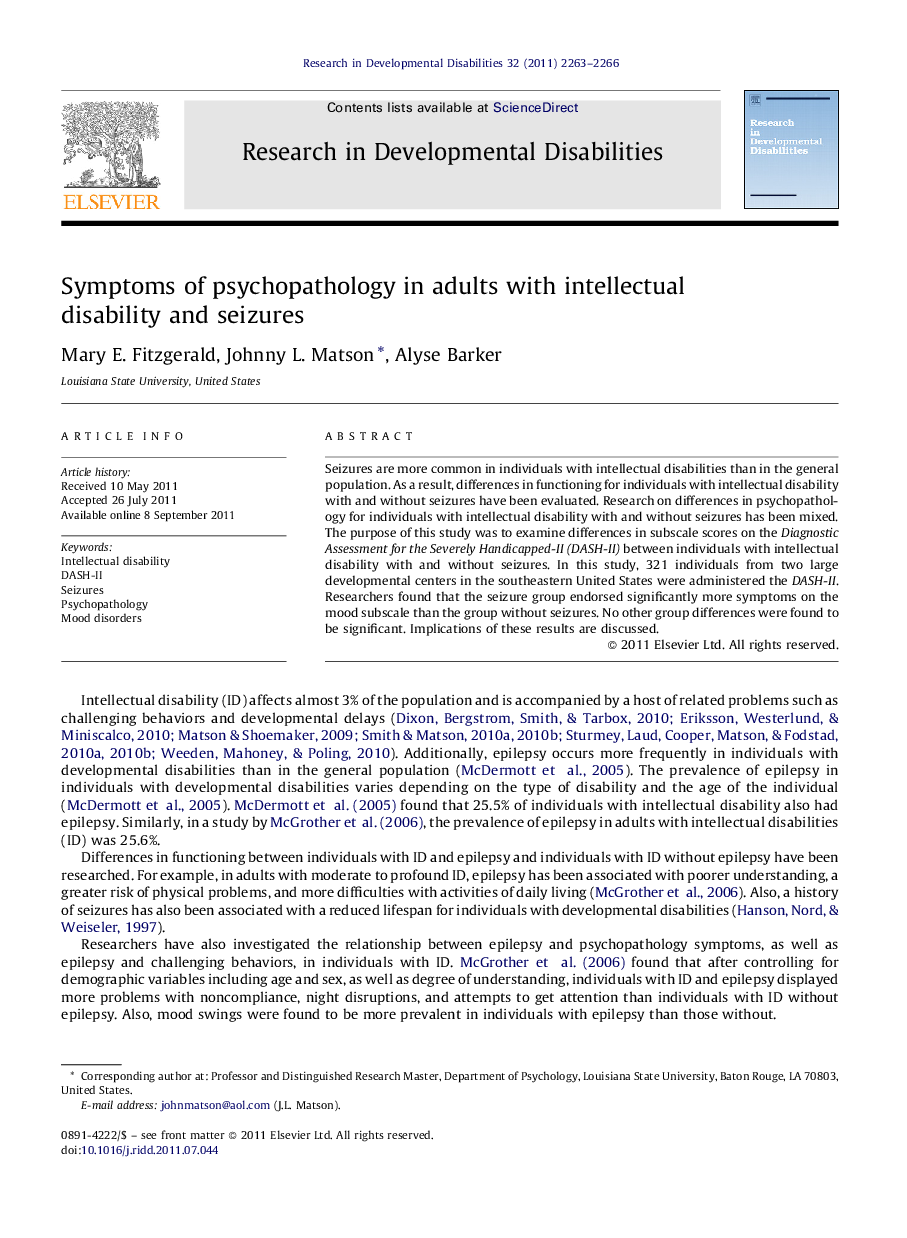| Article ID | Journal | Published Year | Pages | File Type |
|---|---|---|---|---|
| 371803 | Research in Developmental Disabilities | 2011 | 4 Pages |
Seizures are more common in individuals with intellectual disabilities than in the general population. As a result, differences in functioning for individuals with intellectual disability with and without seizures have been evaluated. Research on differences in psychopathology for individuals with intellectual disability with and without seizures has been mixed. The purpose of this study was to examine differences in subscale scores on the Diagnostic Assessment for the Severely Handicapped-II (DASH-II) between individuals with intellectual disability with and without seizures. In this study, 321 individuals from two large developmental centers in the southeastern United States were administered the DASH-II. Researchers found that the seizure group endorsed significantly more symptoms on the mood subscale than the group without seizures. No other group differences were found to be significant. Implications of these results are discussed.
► Seizures occur frequently in persons with intellectual disabilities. ► The co-occurrence of psychopathology, seizures, and intellectual disability have been documented. ► Mood symptoms appeared more frequently in persons with co-occurring intellectual disability and seizures compared to intellectual disability alone.
